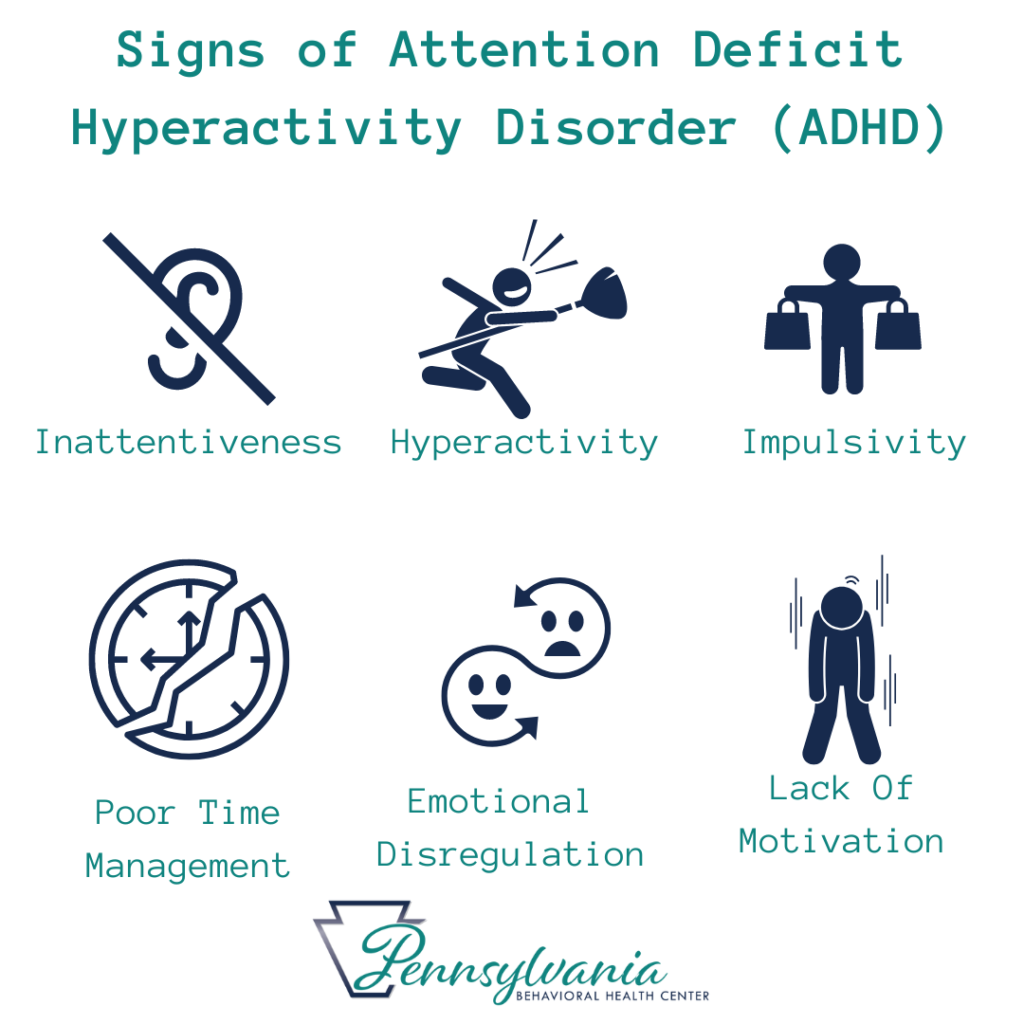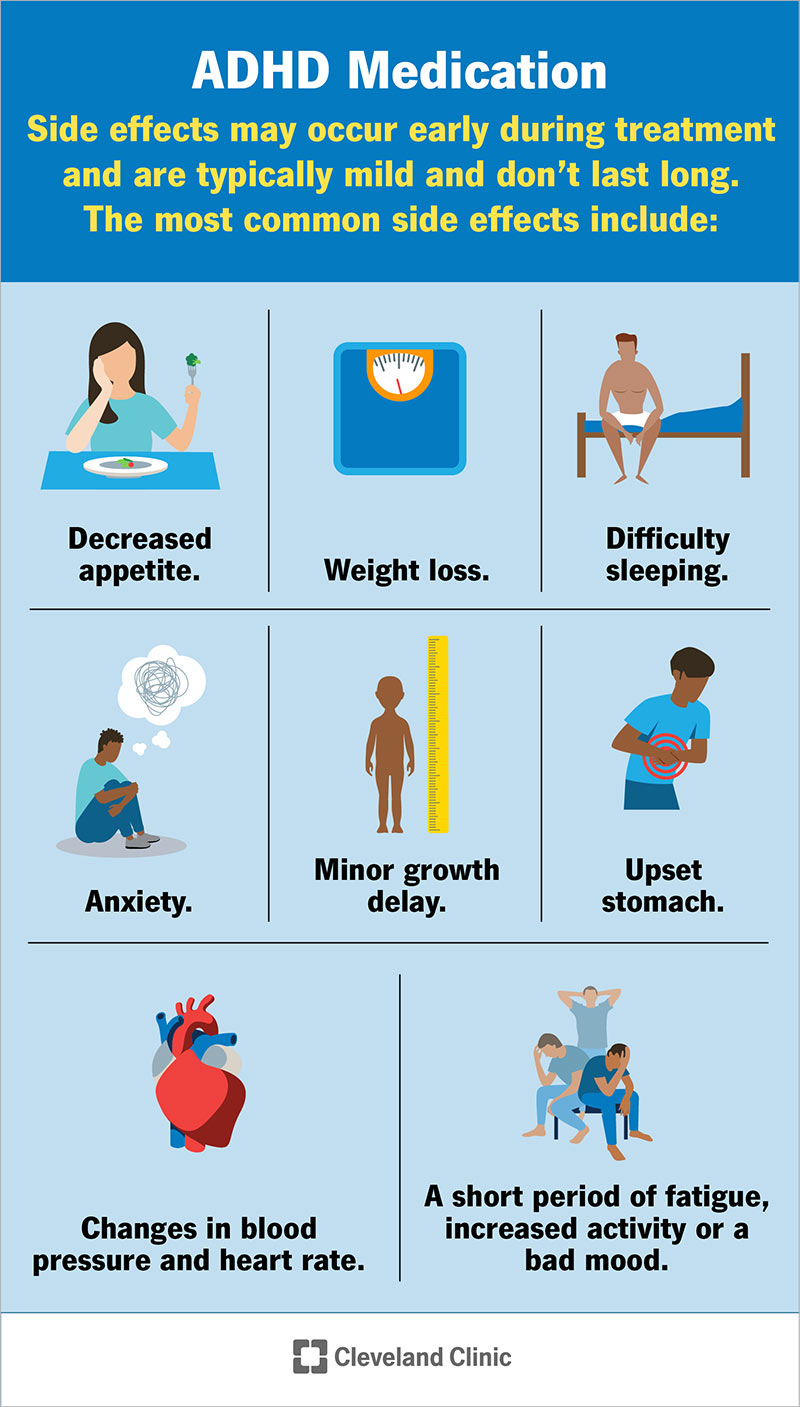Behavioral Health Services Tailored for Overall Well-being
Behavioral Health Services Tailored for Overall Well-being
Blog Article
Checking Out Effective ADHD Therapy Options for All Ages
The complexities of Attention Shortage Hyperactivity Disorder (ADHD) present distinct challenges across different age groups, necessitating a detailed expedition of efficient therapy alternatives. A mix of behavioral therapies, pharmacological interventions, and way of life modifications has revealed pledge in resolving the varied requirements of people with ADHD.
Recognizing ADHD and Its Impact
Attention-Deficit/Hyperactivity Problem (ADHD) is a neurodevelopmental problem identified by consistent patterns of negligence, hyperactivity, and impulsivity that can substantially affect numerous facets of an individual's life. It usually shows up in childhood years, although symptoms can continue into the adult years. The core signs and symptoms of ADHD can interfere with educational performance, hinder social communications, and complicate occupational endeavors.
People with ADHD typically battle with keeping focus on tasks, organizing activities, and complying with with on directions, which can bring about academic underachievement (Depression Treatment). In social contexts, impulsivity might lead to problems in developing and maintaining relationships, as individuals might disrupt conversations or make rash choices without thinking about effects
The variability in symptom discussion indicates that ADHD can impact individuals in a different way, demanding a personalized technique to monitoring. Comprehensive awareness of ADHD's nature and effects lays the groundwork for checking out ideal therapy alternatives tailored to each individual's needs.
Behavioral Therapies for ADHD
Many behavior modifications have been established to effectively address the obstacles linked with ADHD, focusing on customizing specific actions and cultivating vital skills. Among one of the most acknowledged methods are cognitive-behavioral treatment (CBT), moms and dad training, and social abilities training.
CBT helps individuals recognize and change unfavorable idea patterns and behaviors, advertising a more positive expectation and improved self-regulation. This therapy commonly includes functional methods for taking care of impulsivity and improving organization. Parent training programs encourage caregivers by outfitting them with methods to reinforce favorable behaviors and set constant borders, which can be specifically valuable for youngsters with ADHD.
Social abilities training is one more vital part, teaching people with ADHD exactly how to connect effectively with peers - Depression Treatment. This approach usually entails role-playing and comments to enhance communication, teamwork, and dispute resolution skills
Integrating these behavior therapies right into a comprehensive treatment plan can considerably improve functioning and lifestyle for individuals with ADHD. Inevitably, the effectiveness of these treatments depends upon tailored techniques that take into consideration the distinct needs of each person, therefore promoting resilience and versatility in life.
Drug Options Available
For many people with ADHD, medicine can play a considerable duty in managing symptoms and add and depression improving general performance. Both main categories of medications prescribed for ADHD are stimulants and non-stimulants.
Energizers, such as methylphenidate and amphetamine-based medicines, are the most frequently made use of treatments. These medications work by boosting the degrees of natural chemicals, specifically dopamine and norepinephrine, in the brain, which aids boost attention and decrease impulsivity and hyperactivity. They typically generate fast results, making them a favored option for several individuals.

It is essential for health care service providers to carry out an extensive assessment coping with anxiety and depression to determine the most ideal medicine based on private needs, medical background, and prospective side effects. Regular follow-up and tracking are additionally vital to make certain the effectiveness of the selected treatment and to make any type of required adjustments.
Way Of Living Adjustments to Consider
Managing ADHD efficiently expands beyond drug, as way of life modifications can substantially improve general wellness and symptom control. Integrating structured regimens is important; constant timetables aid people with ADHD manage their time successfully and reduce feelings of overwhelm.
Regular exercise is one more important part. Exercise not only aids to boost focus however additionally boosts mood and lowers stress degrees. Activities such as yoga exercise or team sports can be particularly valuable, advertising both physical health and fitness and social communication.
Nutrition additionally plays a pivotal function. Depression Treatment. A well balanced diet plan abundant in omega-3 fatty acids, entire grains, and lean proteins can click site add to enhanced emphasis and cognitive function. Limiting sugar and processed foods is advisable, as these can exacerbate attention deficit disorder and impulsivity
Sleep hygiene is crucial for taking care of ADHD signs. Establishing a regular sleep timetable and developing a restful setting can enhance sleep quality, bring about much better interest and psychological regulation.
Alternative and Alternative Approaches
Alternate and all natural methods to ADHD treatment use a diverse series of choices that complement traditional methods. These techniques usually concentrate on lifestyle adjustments, nutritional interventions, and healing techniques that intend to improve total well-being while addressing ADHD signs and symptoms.

Mindfulness and behavioral therapies are also getting traction as all natural treatments. Practices such as yoga exercise, meditation, and cognitive-behavioral therapy can grow self-regulation and improve interest. These methods support psychological durability, which is especially useful for people with ADHD.
Herbal supplements, such as ginkgo biloba and ginseng, are occasionally discovered; however, it is essential to speak with medical care professionals prior to integrating these into therapy strategies. While alternative and alternative strategies can give beneficial support, they need to preferably be utilized in conjunction with evidence-based therapies to accomplish optimum results for managing ADHD across all ages.
Conclusion
In summary, efficient ADHD therapy necessitates an extensive approach that consists of behavior treatments, medicine, lifestyle modifications, and holistic approaches. This multifaceted strategy highlights the value of customized care in resolving the varied demands of people with ADHD across all age groups.
Report this page